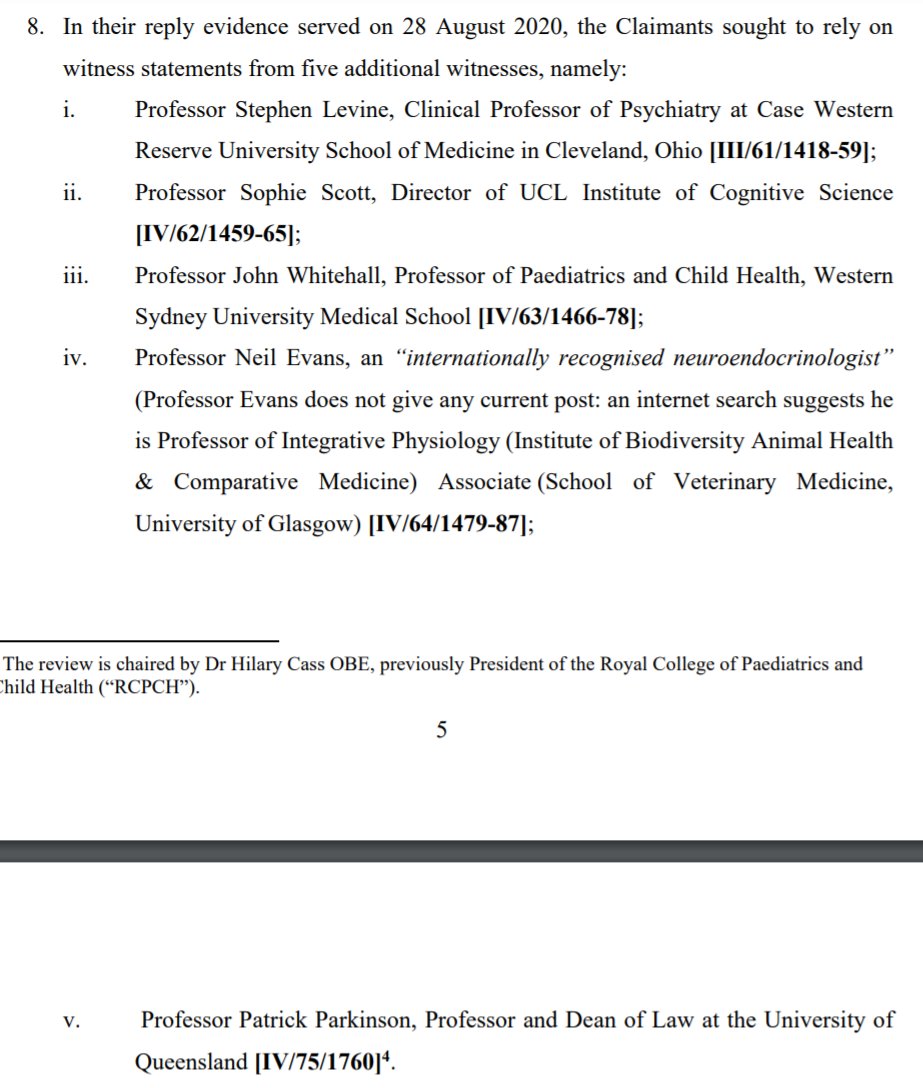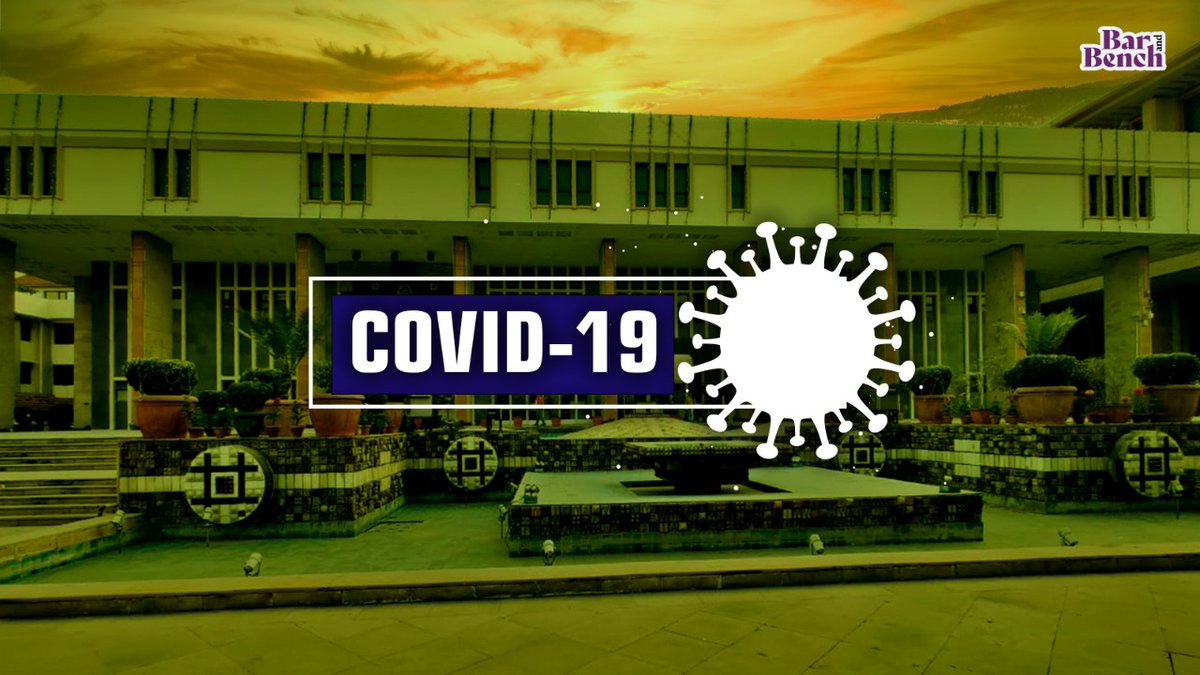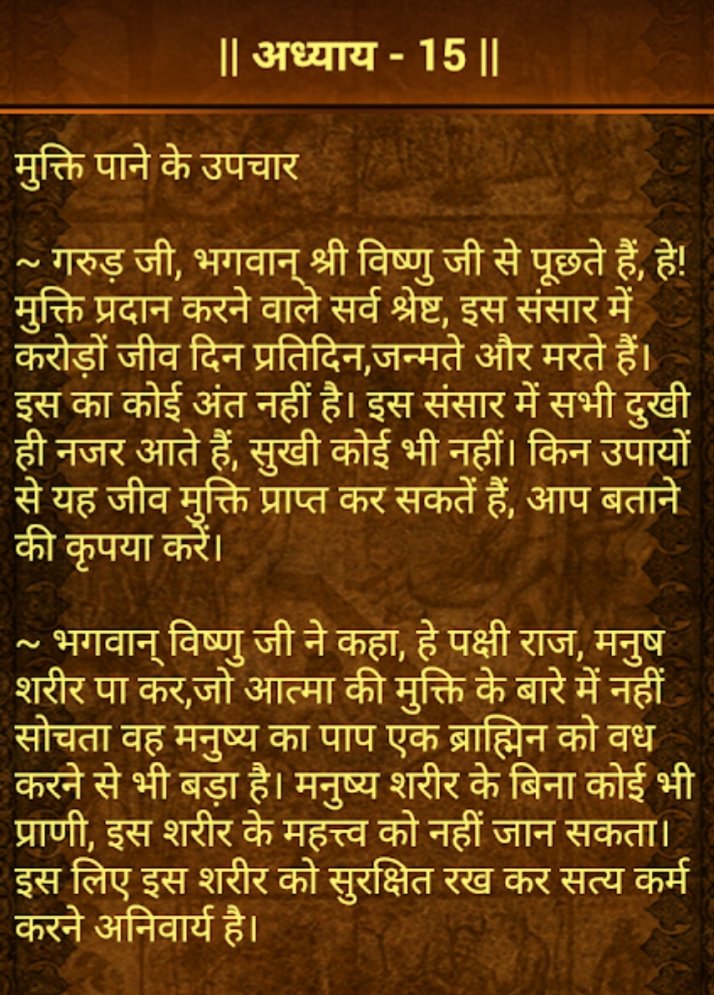There have been so many White folks who’ve asked me how they can be allies in the fight for racial justice. In the words of @BLoveSoulPower, we need co-conspirators and comrades willing to put something on the line and take risks. Use your Whiteness to advocate for BIPOC lives...
More from Law
We need to talk about the 'expert' witness statement evidence led by Ms Bell in her successful case before the Tavistock. THREAD
You can see who gave evidence in her support from these extracts from the Tavistock's Skeleton Argument.

Helpful for you to bear in mind that her solicitor was a man called Paul Conrathe, who has a long association with the religious right in the US (I have talked about him a number of times but this is as good a starting point as any).
I am not going to address here other criticisms that might be made of the form in which that evidence was given or the timing of its service before the court. I am just going to address, in alphabetical order, the individuals whose evidence Mr Conrathe led on Ms Bell's behalf.
The first witness, alphabetically, was Associate Professor of Sociology at the University of Oxford, Michael Biggs.
Mr Biggs was exposed for posting transphobic statements online under a fake twitter handle: @MrHenryWimbush according to this report.
You can see who gave evidence in her support from these extracts from the Tavistock's Skeleton Argument.

Helpful for you to bear in mind that her solicitor was a man called Paul Conrathe, who has a long association with the religious right in the US (I have talked about him a number of times but this is as good a starting point as any).
In this thread, I noted the lawyer acting against the Tavistock, Paul Conrathe, is using very similar arguments (those under 18 cannot consent at all; or cannot lawfully consent without x conditions) as he has run/is running in a number of cases challenging abortion rights. https://t.co/gJk4c9bUED
— Jo Maugham (@JolyonMaugham) June 21, 2020
I am not going to address here other criticisms that might be made of the form in which that evidence was given or the timing of its service before the court. I am just going to address, in alphabetical order, the individuals whose evidence Mr Conrathe led on Ms Bell's behalf.
The first witness, alphabetically, was Associate Professor of Sociology at the University of Oxford, Michael Biggs.
Mr Biggs was exposed for posting transphobic statements online under a fake twitter handle: @MrHenryWimbush according to this report.
Hot take: Courts might be able to review the legality of this impeachment, even under current political-question doctrine. Here’s why and how the issue might arise:
Suppose Senate convicts and disqualifies Trump from ever holding federal office. Trump files paperwork to run anyway, but state officials deny his application, citing his Senate impeachment judgment. Trump sues, arguing that the judgment is void.
Normally a legal dispute about a prospective candidates eligibility to run would certainly present a justiciable case or controversy. But are courts bound to accept the Senate impeachment judgment as valid? Maybe not. Here’s why:
According to Article I, “The Senate shall have the sole Power to try all Impeachments.” This is a small amount of judicial power vested in Congress. When trying impeachments, the Senate sits as a court.
The Senate’s judicial power includes the power to decide relevant legal questions that arise, such as what procedures are sufficient to constitute a “trial” w/in the Constitution’s meaning. Such legal determinations are conclusive, as SCOTUS held in Nixon v. United States (1993).
Honest Q: Some people argue in good faith that an impeachment trial after POTUS leaves office is unconstitutional. I think they\u2019re wrong. But let\u2019s say they\u2019re right, yet senate does it anyway. Does anyone seriously think SCOTUS reverses verdict (or even can)?
— Jonah Goldberg (@JonahDispatch) January 17, 2021
Suppose Senate convicts and disqualifies Trump from ever holding federal office. Trump files paperwork to run anyway, but state officials deny his application, citing his Senate impeachment judgment. Trump sues, arguing that the judgment is void.
Normally a legal dispute about a prospective candidates eligibility to run would certainly present a justiciable case or controversy. But are courts bound to accept the Senate impeachment judgment as valid? Maybe not. Here’s why:
According to Article I, “The Senate shall have the sole Power to try all Impeachments.” This is a small amount of judicial power vested in Congress. When trying impeachments, the Senate sits as a court.
The Senate’s judicial power includes the power to decide relevant legal questions that arise, such as what procedures are sufficient to constitute a “trial” w/in the Constitution’s meaning. Such legal determinations are conclusive, as SCOTUS held in Nixon v. United States (1993).
























